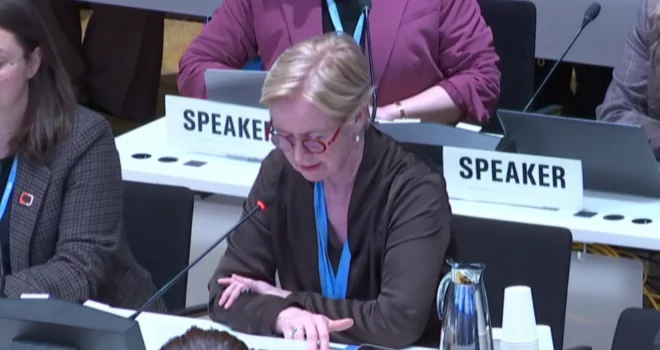GENEVA (7 September 2021) – The World Heart Federation (WHF) has developed a new policy brief aimed at reducing the negative impacts of air pollution on people’s cardiovascular and overall health.
Together with high blood pressure, unhealthy diets and physical inactivity, air pollution is one of the most important risk factors for heart attack, stroke, diabetes and respiratory diseases, and exposure to air pollution has also been linked with increased vulnerability to the more severe consequences of COVID-19. In 2019, an estimated 6.7 million deaths, or 12 percent of all deaths worldwide, were attributable to outdoor or household air pollution. As many as half of these deaths were due to heart disease and stroke.
The WHF Air Pollution Policy Brief, Clean Air, Smart Cities, Healthy Hearts, highlights the need for policies and investments that support a reduction in air pollution at all levels of society, including cleaner transport, energy-efficient homes, power generation, industry regulation, access to clean fuels and technologies, and better municipal waste management, which can effectively reduce key sources of air pollution.
In addition to concrete policy action on an international scale, targeted patient interventions and key city-level infrastructure adjustments can do much to mitigate the negative impact of air pollution on the cardiovascular system.
“Air pollution is a major risk factor for mortality in general and cardiovascular disease in particular,” said Michael Brauer, Chair of the WHF Air Pollution Expert Group. “This policy brief aims to facilitate advocacy efforts by the global CVD community by presenting strong evidence and clear policy asks across all levels of society.”
In recent years, air pollution has risen to the forefront of the global health agenda. The World Health Organization has recognized air pollution as a serious risk factor for NCDs and developed Air Quality Guidelines which provide an assessment of the health effects of air pollution and thresholds for harmful pollution levels. While updates to the Guidelines are still forthcoming, the recent publication of the IPCC special report on the effects of global warming has kept the many impacts of air pollution firmly in the headlines and on the agendas of policymakers around the world.
However, progress in turning policy recommendations into concrete actions has been slow. Nine in ten people worldwide continue to be exposed to levels of air pollution above WHO Air Quality Guidelines. Those living in low-resource settings are especially vulnerable and disproportionately affected by the negative impacts of air pollution, which constitutes a major, and often increasing, threat to public health.
The WHF Policy Brief provides evidence-based, practical guidance that can be adapted to local contexts, highlighting the different but equally important roles of physicians, scientific societies, foundations, patient groups, and policymakers at the local, national and global level in reducing the negative health impacts of air pollution. It proposes actionable policy measures to mitigate the deadly impact of air pollution and concludes with a set of recommendations for key stakeholders, with a focus on cross-sectoral collaboration.
“The World Heart Federation is committed to addressing the lack of concerted action on air pollution and its impacts on cardiovascular health,” said WHF President Prof Fausto Pinto. “We encourage our Members, partners, and anyone working at the intersection of environmental protection, climate change, and health to read the policy brief and join us in this campaign.”
ENDS
Download the WHF Policy Brief on Air Pollution
Download the Executive Summary
For information, please contact:
Mihela Kralj, Communications Manager, Mihela.Kralj@worldheart.org


